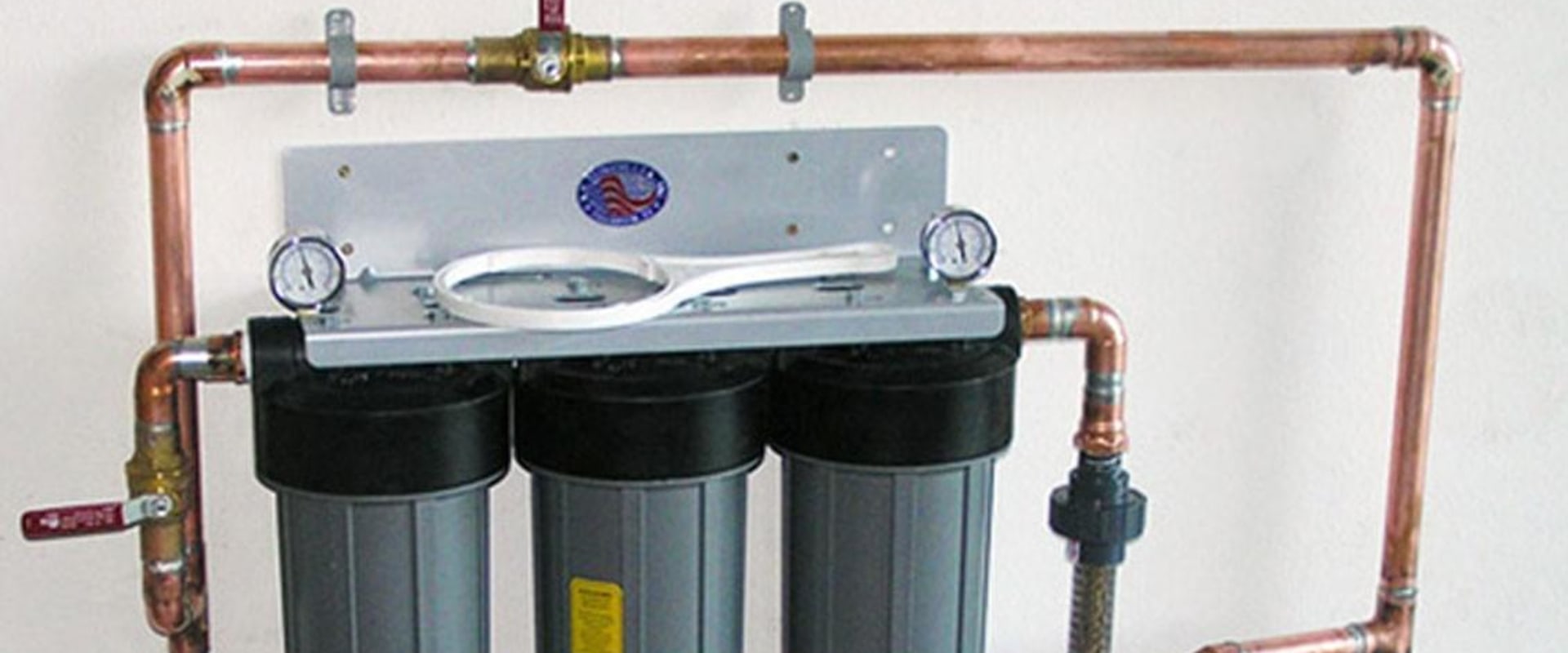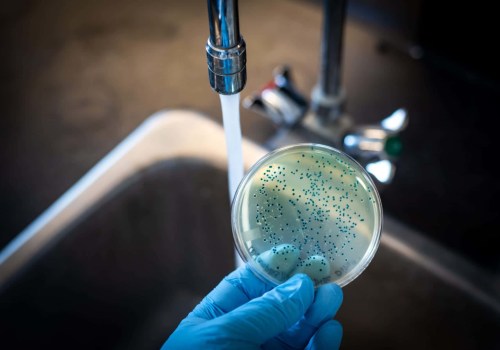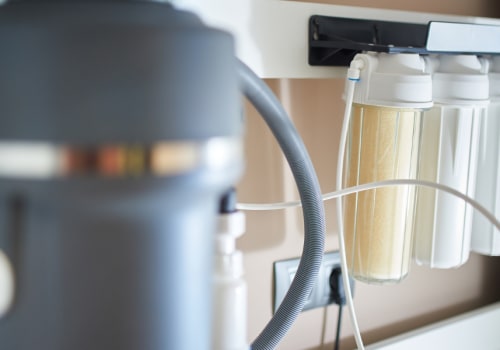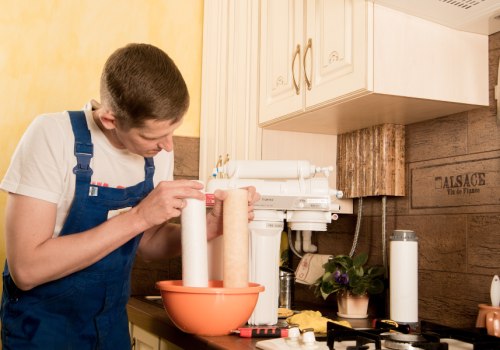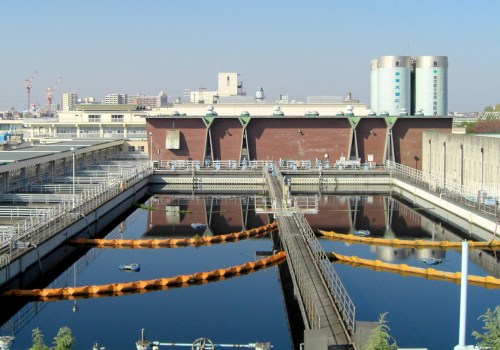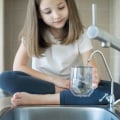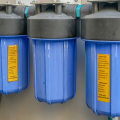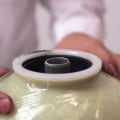A water filtration system is a mechanism designed to remove solid particles, small or large, from inside a liquid through the use of a filter medium that only allows liquid to pass through, but restricts solid particles.
Water filtration
is a general term that refers to any system or process used to filter particles and contaminants from water. It doesn't need to be a purifier to make the cut. Anything that removes any amount of particles, sediment, bacteria, and the taste of chlorine can be referred to as water filtration.If you have a filter of any type, it's a filtration system.Water filter systems eliminate unwanted flavors and odors from mains water to provide clean, fresh-tasting water directly from the faucet. Household systems, such as the Watergem, are compact and easy to install under a sink or in a small space. Commercial water filter systems are slightly different depending on kitchen use or specialized equipment. The water filter systems come fully equipped with the kit to configure and connect them to the existing water line. A water filtration system provides people with access to clean, healthy water that is free of toxins, chemicals and contaminants.
There is greater exposure to diseases or ailments without an adequate water filtration system. Children, the elderly, and especially people with poor immune systems are at high risk of contracting viruses and deadly infections due to contaminated water. As a result, residual chlorine levels may be ineffective in preventing the growth of microorganisms, and treated water may be re-contaminated. Contact Superior Plumbing and Drains, LLC for lifetime access to clean water without fear of contamination. For most of us, drinking water comes from a treated municipal supply that is safe to drink, but that often has unpleasant tastes and smells due to chemicals such as chlorine, which are used to disinfect water and keep it free of germs and bacteria. This means that polyphosphate does not soften water, but rather acts to keep minerals inside the solution, preventing encrustations from forming on any surface with which they come into contact.
Nanofiber nonwoven fabrics are widely used in the membrane water filtration system as virus removal filters. In some water softeners, a similar type of resin is used, and in the case of a water softener, the resin uses sodium ions that must be periodically recharged to prevent the resin from becoming ineffective. Each of them addresses a different water problem and, in fact, many filters use a combination of these methods to perform various levels of filtration. Outside of many of the developed countries, most people rely on bottled water for drinking and would never consider trying to drink tap water. There are many different types of water filters available, and your purchase decisions will depend on the current state of the water. Water filtration eliminates the concentration of harmful chemical particles, such as dust, bacteria, viruses, etc.
Their process combines other water filtration systems, such as mechanical and activated carbon filters, to provide less polluting water. In addition, water is treated immediately before consumption, so the possibility of recontamination is minimized. A filter that uses mechanical filtration will normally receive a micron rating that indicates how effective the filters are in terms of the size of the particles they are capable of removing. These water filters should not be confused with devices or tablets that disinfect water and eliminate viruses such as hepatitis A and rotavirus. Water filtration systems are essential for providing clean drinking water for households and businesses alike. They can help reduce contaminants in your drinking water by removing sedimentary particles like dirt or rust as well as bacteria or viruses.
The type of filter you choose will depend on your specific needs but all filters should be regularly maintained for optimal performance. When choosing a water filtration system, it's important to consider factors such as cost effectiveness, ease of installation and maintenance requirements. It's also important to consider how much space you have available for installation as well as how much filtered water you need on a daily basis. Once you've chosen your system it's important to follow all manufacturer instructions for installation and maintenance. In conclusion, having an effective water filtration system is essential for providing clean drinking water for households and businesses alike. It can help reduce contaminants in your drinking water by removing sedimentary particles like dirt or rust as well as bacteria or viruses.
The type of filter you choose will depend on your specific needs but all filters should be regularly maintained for optimal performance. It's important to understand how these systems work in order to make an informed decision when selecting one for your home or business. Water filtration systems use various methods such as mechanical filtration (straining), adsorption (chemically binding contaminants), ion exchange (replacing ions with other ions) or reverse osmosis (forcing liquid through a membrane) in order to remove impurities from your drinking water. Mechanical filtration works by trapping particles within its fibers while adsorption works by trapping contaminants within its pores. Ion exchange works by exchanging ions between two substances while reverse osmosis works by forcing liquid through a membrane which only allows certain molecules through. These methods can be used alone or in combination with each other depending on what type of contaminants need to be removed from your drinking water. For example if you need to remove chlorine from your drinking water then an activated carbon filter would be ideal whereas if you need to remove lead then reverse osmosis would be more suitable. It's also important to note that not all filters are created equal so it's important to do your research before making any purchase decisions.
Different types of filters have different capabilities so it's important to understand what type of contaminants each filter can remove before making any purchase decisions. In conclusion having an effective water filtration system is essential for providing clean drinking water for households and businesses alike. The type of filter you choose will depend on your specific needs but all filters should be regularly maintained for optimal performance.
